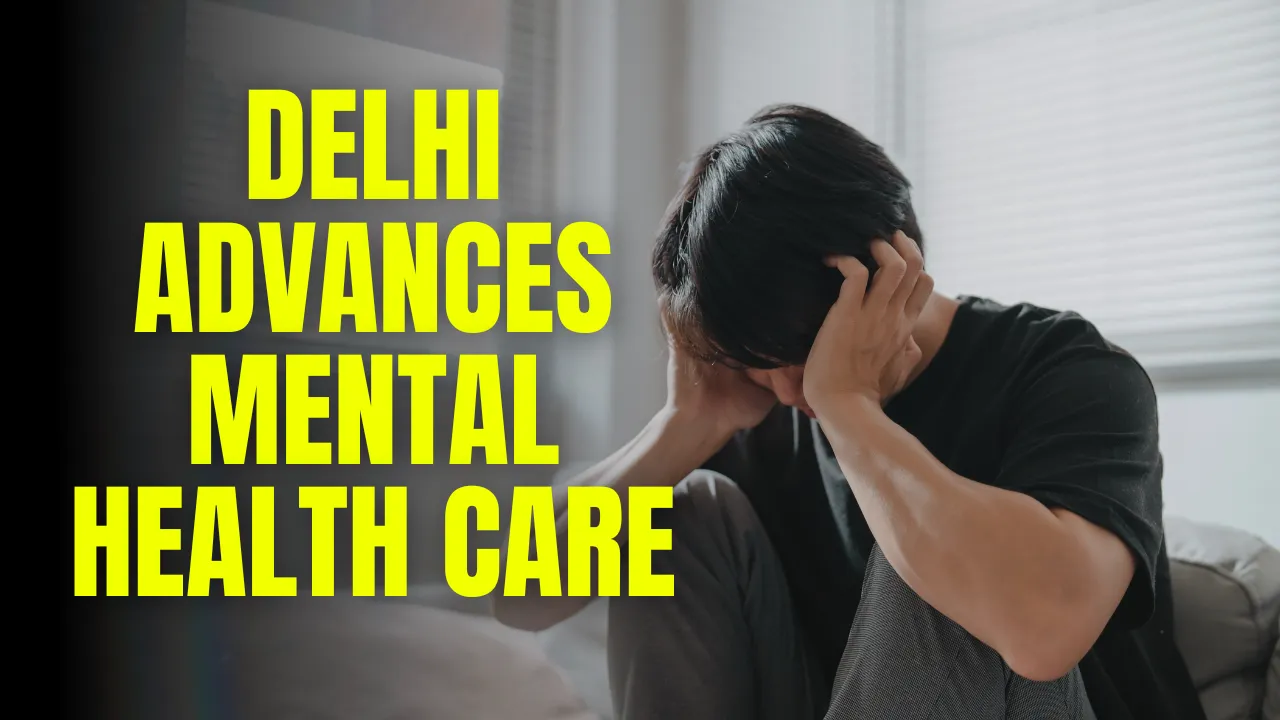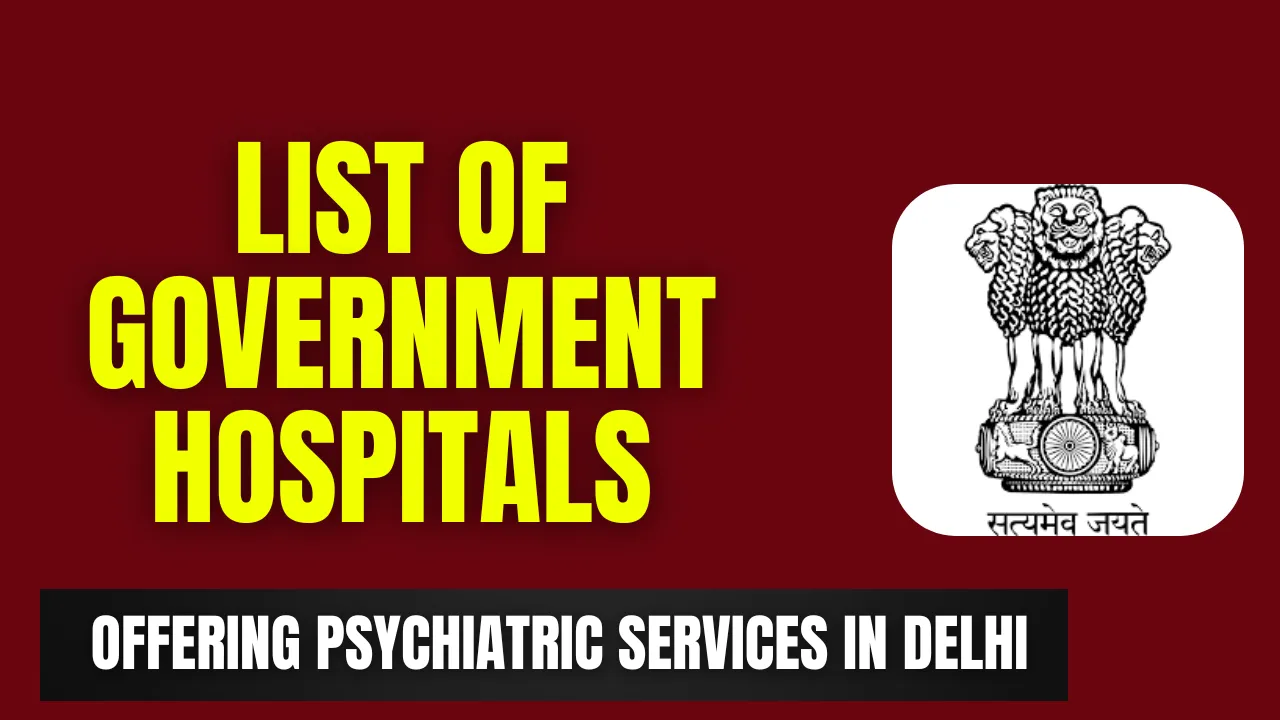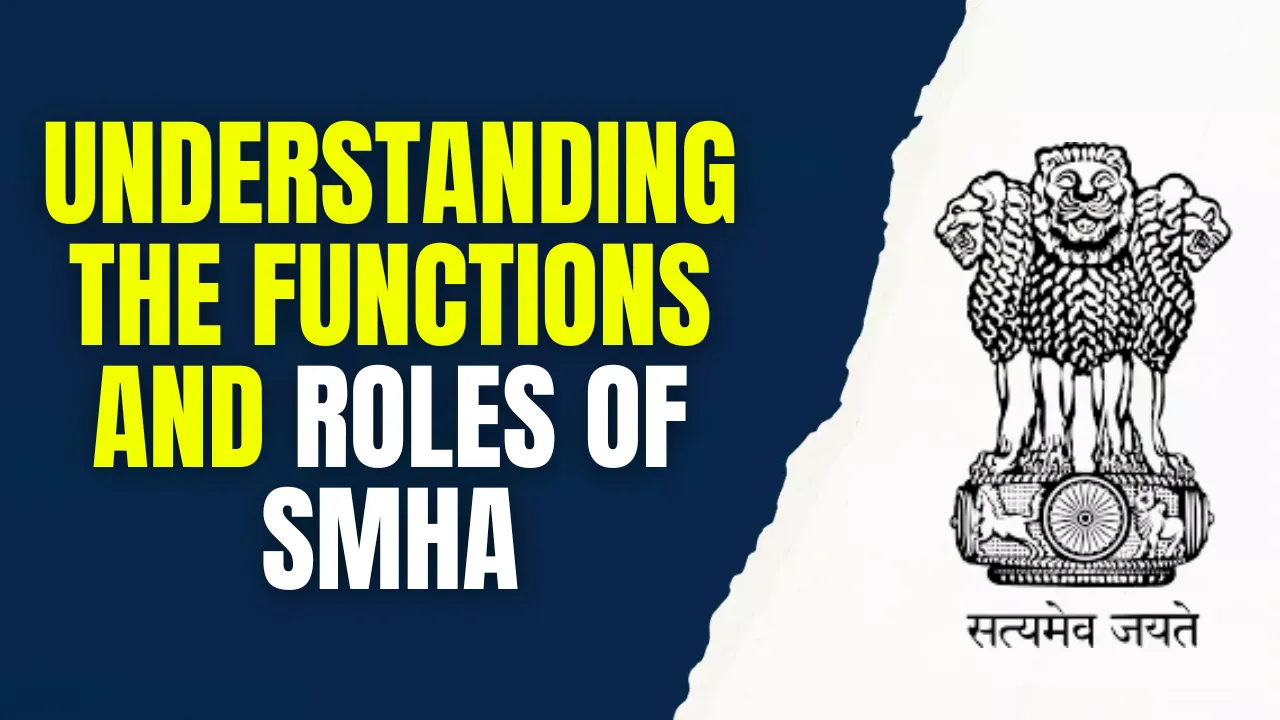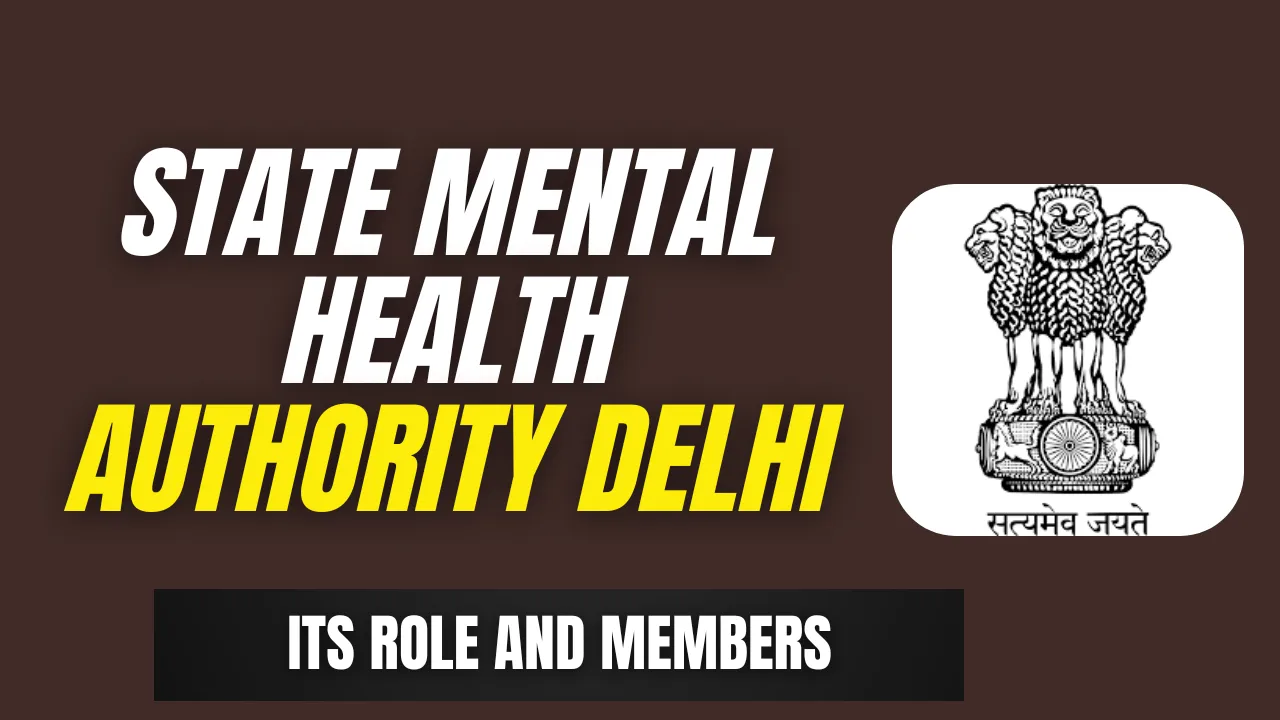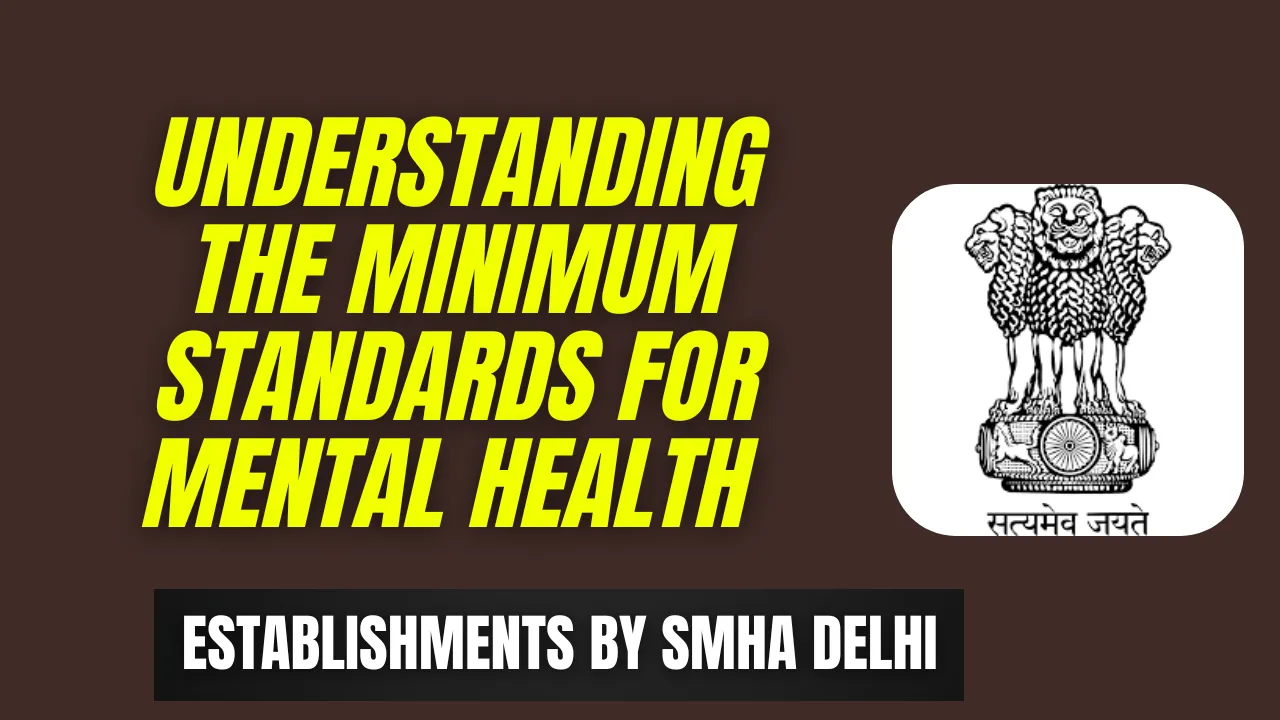Delhi Advances Mental Health Care : The approval of the Delhi mental health authority is a significant step forward for the city’s healthcare system. With the green light given by Lieutenant Governor VK Saxena, Delhi is set to establish the State Mental Health Authority (SMHA) in line with the Central Mental Health Care Act of 2017. This move aims to enhance mental health services, regulate establishments, and address long-standing challenges in the sector.
The decision follows a five-year delay, causing concern among stakeholders and drawing criticism from the Lieutenant Governor. The SMHA’s formation is expected to improve the quality and accessibility of mental health services by involving a diverse range of experts, patient advocates, and representatives from non-governmental organizations. This article explores the background, implications, and potential impact of the SMHA on mental health care in Delhi.
Overview Table
| Key Information | Details |
| Approval Authority | Lieutenant Governor VK Saxena |
| Act Compliance | Central Mental Health Care Act, 2017 |
| Duration of Delay | Five years |
| Key Members of SMHA | Government officials, independent experts, patient advocates, caregivers, NGOs |
| Main Responsibilities | Registration, supervision, quality enhancement of mental health services |
| Approval Requirements | President of India’s approval via Ministry of Home Affairs |
| Main Points of Criticism | Delay in formation and discretionary powers of LG |
Background and Delay in SMHA Formation
The Central Mental Health Care Act of 2017 mandates that each state establish a State Mental Health Authority within nine months of the Act’s enactment. However, in Delhi, this process was delayed by five years, causing a gap in the regulation and supervision of mental health services. The delay was attributed to administrative challenges and disagreements between the state and central authorities.
Lieutenant Governor VK Saxena criticized the slow pace of the Delhi Health Department, stressing the need for timely action to improve mental healthcare. His concerns highlighted how prolonged delays could affect the quality and availability of mental health services in the city.
Five-Year Delay and Its Implications
Criticism from the Lieutenant Governor
The Lieutenant Governor’s criticism was focused on what he described as a lack of urgency by the Delhi Health Department. He emphasized that the delay not only violated the timeline set by the Central Mental Health Care Act but also left mental health services without proper oversight for years. His statements underscored the importance of regulatory frameworks in ensuring that mental health establishments adhere to high standards.
Compliance with the Central Mental Health Care Act, 2017
The Act requires that each state create a mental health authority to oversee the registration, regulation, and supervision of mental health services. This includes licensing professionals and ensuring that facilities operate ethically and effectively. The absence of such an authority in Delhi for five years meant that mental health establishments were largely unregulated, potentially affecting the quality of care.
Key Provisions of the Act
Mandate for Establishing SMHA
The Act mandates the creation of SMHA to protect the rights of people with mental illnesses, regulate mental health services, and ensure that treatment practices are ethical and effective. The SMHA’s role includes supervising mental health establishments, enforcing quality standards, and addressing patient grievances.
Composition of the State Mental Health Authority
The SMHA is designed to have a diverse composition, including:
- Government officials and independent experts to balance governance and professional insights.
- Patient advocates, caregivers, and representatives from NGOs to ensure that the authority’s decisions are inclusive and patient-focused.
This structure aims to prevent the authority from becoming purely bureaucratic and ensures that different perspectives are considered in decision-making.
Role and Responsibilities of SMHA
Registration and Supervision of Mental Health Establishments
One of the primary roles of the SMHA is to register and monitor mental health establishments to ensure compliance with quality and ethical standards. This includes conducting inspections, addressing complaints, and enforcing corrective actions when necessary.
Licensing Mental Health Professionals
The SMHA will be responsible for licensing mental health professionals such as clinical psychologists, psychiatric social workers, and mental health nurses. This process is essential to maintaining professional standards and ensuring that only qualified individuals provide mental health services.
Ensuring Quality Care
By overseeing both establishments and professionals, the SMHA aims to enhance the overall quality of mental health care in Delhi. This includes ensuring that treatment practices are evidence-based and that patients receive appropriate and respectful care.
Challenges and Points of Contention
Discretionary Powers of the LG under Amendment Act
The Government of National Capital Territory of Delhi (Amendment) Act, 2023, granted the Lieutenant Governor discretionary powers, including the authority to recommend members for the SMHA. This provision has been controversial, with critics arguing that it undermines the autonomy of the elected government and could lead to centralization of power.
Criticism by Delhi Health Minister
Delhi Health Minister Saurabh Bhardwaj criticized the discretionary powers of the LG, claiming that they contributed to the delay in appointing members to the SMHA. He also raised concerns about the suspension of computerized OPD services and free laboratory tests, attributing these issues to decisions made by the LG’s office.
Approval Process and Recent Developments
Steps Taken by CM Arvind Kejriwal and Health Minister
The proposal to establish the SMHA was approved by Chief Minister Arvind Kejriwal and Health Minister Saurabh Bhardwaj before being submitted to the LG. This approval was a critical step towards moving past the administrative hurdles that had delayed the process for so long.
President’s Approval and Ministry of Home Affairs’ Role
Following the LG’s approval, the Delhi Health Department must seek the President of India’s approval through the Ministry of Home Affairs. This step is necessary to comply with the Government of National Capital Territory of Delhi (Amendment) Act, 2023, ensuring that all legal and procedural requirements are met.
Impact on Mental Health Services in Delhi
Expected Improvements in Care and Access
With the approval of the Delhi mental health authority, significant improvements are expected in the quality and accessibility of mental health services. A regulated framework will ensure that mental health establishments adhere to high standards, benefiting patients across the city.
Role in Addressing Mental Health Stigma
The SMHA’s role is not limited to regulation but also includes raising awareness and reducing the stigma associated with mental health issues. By involving NGOs and patient advocates, the authority can promote a more inclusive approach to mental health care in Delhi.
FAQs
What is the State Mental Health Authority?
The SMHA is a regulatory body responsible for overseeing mental health services, licensing professionals, and ensuring quality care in Delhi.
Why was there a delay in forming the SMHA?
The delay was due to administrative challenges and disagreements between state and central authorities.
Who are the members of the SMHA?
The SMHA includes government officials, independent experts, patient advocates, caregivers, and representatives from NGOs.
What are the main responsibilities of the SMHA?
The SMHA is responsible for registering and supervising mental health establishments, licensing professionals, and ensuring compliance with quality standards.
Final Thoughts
The approval of the Delhi mental health authority is a crucial step towards strengthening mental health care in the city. By focusing on regulation, quality standards, and inclusive representation, the SMHA has the potential to address significant gaps in the system. As the process advances, it is essential for all stakeholders to collaborate effectively to ensure that these reforms translate into meaningful improvements for patients. Feel free to share your thoughts or explore more about mental health initiatives in Delhi.
